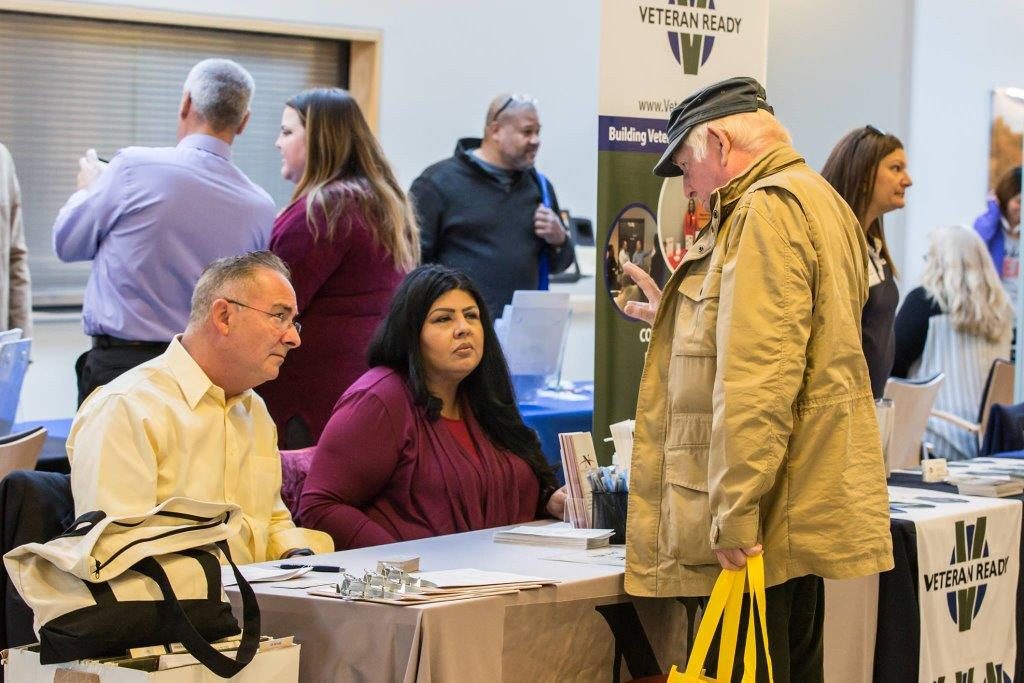- Home
- About
- Benefits & Services
- State Veterans Homes
- Nevada Veterans Memorial Cemeteries
- Community
- News
- Suicide Prevention
- Donate
- Fallen Heroes
- Nevada’s Veterans Memorials
- Calendar/Events
- Nevada Transition Assistance Program (NVTAP)
By Chuck N. Baker
In early January, the Department of Veterans Affairs (VA) held its Quarterly Town Hall meeting and Resource Fair at its southern Nevada health care facility. Some 50 different community organizations and various government agencies came together to provide information for veterans, family members and caregivers.

Workshops covered a wide range of topics from caregiver support to financial management as well as planning and management for Post 9-11 veterans.
For those who could not attend the event, below is a look at some of the key questions raised and answered in a “Q & A” session:
Q: One individual asked if any progress had been made to hire more doctors to work for the VA. Chief of Staff Dr. Ramu Komanduri answered:
A: “We continue to make efforts to recruit medical professionals.” He described a situation where qualified liver transplant surgeons might want to reside in Nevada, but there is no need for that specialty in the Silver State. In addition, he said private practice pays more than the VA, which often hits home, and explained, “Some young doctors have $300,000 debt to repay.”
Q: A veteran asked about the use of cannabis to treat certain ailments.
A: In summary, Komanduri replied the VA is unable to prescribe cannabis because it remains illegal under federal law. While under Sate law, the use of pot is legal in Nevada to us either medically or recreationally, the federal government does not recognize the difference between medical or recreational use and strictly prohibits the use of pot considering it illegal under federal law.
Q: One veteran brought up the parking situation on the grounds of the VA Medical Center.
A; It was explained additional parking for employees had recently been opened in the rear of the facility. This allowed for more parking in the front of the building to be used by visitors and by veterans who are coming to the building for medical appointments.
Q: A topic was discussed about medical treatments at home and the time involved by doctors when a patient is seen at the medical center.
A: The VA’s Southern Nevada Healthcare Center Director Peggy Kearns spoke about the growing use of technology to treat various medical situations. She said more and more health situations can now be diagnosed and treated in the home using computers, texting and mobile phones. “Slowly but surely we’re moving into the 21st Century,” she said.
On that same subject Komanduri explained that today there are more available home devices that can be monitored at all times. Easy surveillance of cancer cells is but one example of home care advances that can lead to fewer hospitalized veterans. “Hospitals will go the way of the mall,” he added.
He also explained that “medical notes are longer than before,” and today there is a growing tendency to document everything about a patient’s examination, which takes time away from seeing other patients.
In addition to providing information, the VA had VA representatives on hand to assist attendees with enrollment, eligibility, benefits, patient advocacy and billing.
For more information on getting the most out of your VA healthcare system, check out this VA blog written by a Marine veteran:
https://www.blogs.va.gov/VAntage/26400/how-i-hack-the-va-healthcare-system-for-a-great-experience/